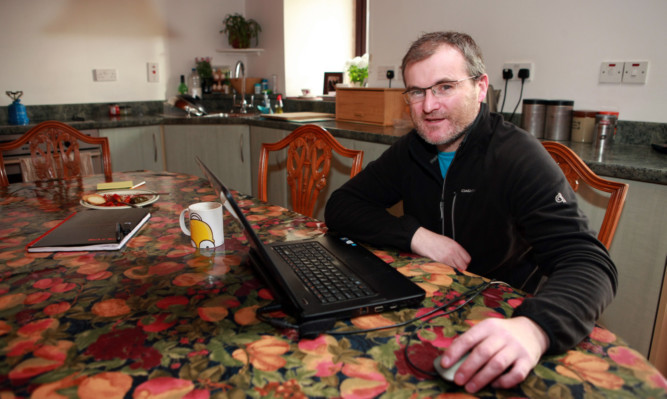During six months spent battling the deadly disease ebola in West Africa, experienced Tayside doctor Stephen McSwiggan witnessed a harrowing succession of suffering and death.
Of all those who sought treatment, two-thirds died within the makeshift medical camps set up to combat the virus, while ill-prepared local medical staff also succumbed to infection.
Despite more than 20 years’ clinical experience, Dr McSwiggan said nothing could have prepared him for the scale of the tragedy.
In Liberia, where he was stationed, some 3,605 people have died from the disease the highest number in any single country and 40% of the worldwide total.
Dr McSwiggan, 44, who works at Dundee University as the senior clinical trial manager at Tayside Medical Science Centre, volunteered with the international aid organisation Medecins Sans Frontiers.
He helped them trial a new drug and treated numerous critically ill patients.
“I don’t think any amount of work in the UK can prepare you for the sheer level of mortality,” he said.
“It’s like going into a war zone.
“In one hospital near to where I was working, nearly 20% of the staff died of ebola.People didn’t know what they were dealing with.”
Dr McSwiggan said preventative measures and new treatments are now having an impact.
His trial is in its earliest stages but there is already evidence it is having an impact, with the 500th survivor released from the medical centre days before his time in Africa drew to a close.
Having now returned to his home in Tealing, Dr McSwiggan is under a temporary, low-level quarantine. He insists there is no cause for his patients or colleagues to be anxious, being symptom free and having taken every possible precaution.
“I’m not a risk to other people you’re only a risk if you’ve got symptoms,” he said.
“I can’t afford to get anything like the flu, however, as that could cause panic, so I’m keeping out of everyone’s way.”
